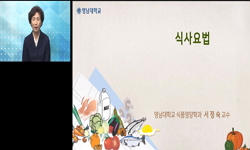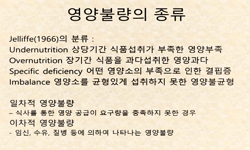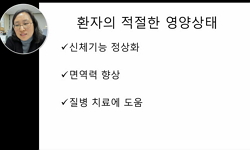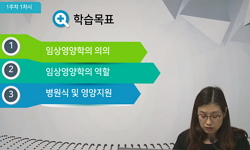As the incidence of chronic diseases such as diabetes and hypertension increases, complications such as decreased renal function are also increasing in many patients. Nutritional management in hemodialysis patients is a very important factor for progn...
http://chineseinput.net/에서 pinyin(병음)방식으로 중국어를 변환할 수 있습니다.
변환된 중국어를 복사하여 사용하시면 됩니다.
- 中文 을 입력하시려면 zhongwen을 입력하시고 space를누르시면됩니다.
- 北京 을 입력하시려면 beijing을 입력하시고 space를 누르시면 됩니다.

Nutritional Status and Dietary Management According to Hemodialysis Duration = Nutritional Status and Dietary Management According to Hemodialysis Duration
한글로보기https://www.riss.kr/link?id=A106043200
- 저자
- 발행기관
- 학술지명
- 권호사항
-
발행연도
2019
-
작성언어
-
- 주제어
-
등재정보
KCI등재
-
자료형태
학술저널
-
수록면
28-35(8쪽)
- 제공처
-
0
상세조회 -
0
다운로드
부가정보
다국어 초록 (Multilingual Abstract)
As the incidence of chronic diseases such as diabetes and hypertension increases, complications such as decreased renal function are also increasing in many patients. Nutritional management in hemodialysis patients is a very important factor for prognosis and quality of life. The purpose of this study was to investigate the differences in nutritional status and dietary management according to hemodialysis duration. A total of 145 patients were divided into 4 groups according to hemodialysis duration: less 1 year (D1), 1-5 years (D2), and above 5 years (D3). The rates of protein-energy wasting were 31.1% in D1 group, 49.5% in D2 group, and 47.6% in D3 group. However, there was no significant difference between the 3 groups. Nutrient intake analysis showed that protein, iron, and vitamin C were significantly lower in the D3 group than in the D1 group. Protein intake in all 3 groups was insufficient compared to the recommended dietary amount for dialysis patients. The most difficult aspect in dietary management was cooking with low sodium. In the D3 group, which had the longest duration of dialysis, the practice of diet therapy and self-perceived need for nutrition education was lowest. Observations of nutritional status are necessary to maintain the health status of dialysis patients. In addition, education plans should be prepared to mediate the nutrient intakes and identify the patient's difficulties and provide practical help.
동일학술지(권/호) 다른 논문
-
- 한국임상영양학회
- ( Bo Young Jang )
- 2019
- KCI등재
-
- 한국임상영양학회
- ( Mohammad Hassan Golzari )
- 2019
- KCI등재
-
- 한국임상영양학회
- ( Ehsan Nozari )
- 2019
- KCI등재
-
- 한국임상영양학회
- ( Saerom Shin )
- 2019
- KCI등재





 KISS
KISS






